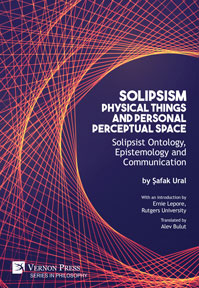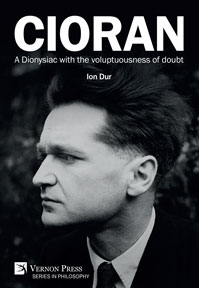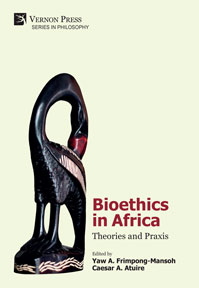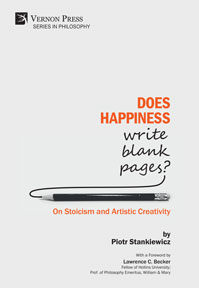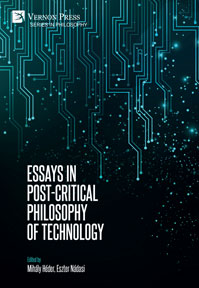Search
Browse
by Publication status
by Subject
Anthropology (26) Art (171) Business and Finance (38) Cognitive Science and Psychology (63) Communication and Journalism (51) Economics (116) Education (71) History (168) Human Geography (23) Interdisciplinary (43) Language and Linguistics (178) Law (16) Music Studies (18) Philosophy (222) Political Science and International Relations (127) Sociology (402) Statistics and Quantitative Methods (21)by Series
Series in Literary Studies (62) Series in Philosophy (57) Series in Education (49) Series in Sociology (42) Series in World History (31) Series in Politics (30) Bridging Languages and Scholarship (25) Series in Language and Linguistics (25) Cognitive Science and Psychology (20) Series in Philosophy of Religion (20) Series in American History (19) Series in Art (19) Critical Perspectives on Social Science (16) Series in Cinema and Culture (16) Curating and Interpreting Culture (15) Series on the History of Art (14) Series in Anthropology (13) Series in Critical Media Studies (13) Economics (13) Series in Business and Finance (12) Series in Music (12) Series in Performing Arts (9) Philosophy of Personalism (8) Series in Communication (8) Series in Law (8) Series in Economic Methodology (7) Series on Climate Change and Society (7) Classics in Economics (6) Series in Economic Development (6) Women's Studies (6) Philosophy of Forgiveness (5) Series in Built Environment (5) Series in Economic History (5) Series in Philosophy of Science (4) Series in Social Equality and Justice (4) Series on the History of Science (4) Serie en Sociología (3) Series in Contemporary History (3) Series in Creative Writing Studies (3) Series in Design (3) The Interdisciplinary Built Environment (3) Series in Heritage Studies (2) Series in Innovation Studies (2) Serie en Ciencias Políticas (1) Serie en Comunicación y Medios (1) Serie en Entorno Construido (1) Serie en Estudios Culturales (1) Serie En Estudios Literarios (1) Serie en Filosofía (1) Serie en Música (1) Series in Classical Studies (1) Series in Economics of Technological Change (1) Series in Philosophy of Race (1) Series in Urban Studies (1)by Language
English Spanishby Author
Browsing with filters
Solipsism, Physical Things and Personal Perceptual Space
Solipsist Ontology, Epistemology and Communication
Safak Ural, İstanbul University, Turkey
Availability: In stock
348pp. ¦ $65 £48 €55
Solipsism indicates an epistemological position that denies the existence of ‘others’ by asserting that the ‘self’ is the only thing that can be known to exist. For sophist philosophers, the belief that “we can not know anything, and even if we do so, we cannot communicate it” is central to this theory. However, until now there has been little academic scholarship that has tried to provide answers to the pressing issues raised by solipsism. In Solipsist Ontology: Physical Things and Personal Perceptual Space, Ural aims to redefine solipsism by analyzing and elaborating on traditional philosophical problems, such as empiricism and rationalism, as well as discussing problems of language, communication, and meaning. Ural reveals where solipsism has been previously ignored, pseudo-problems have arisen that disguise the sources of the problems with prejudices that concern the philosophical problems in question. Notably, many current, as well as traditional problems of ontology, epistemology, and language are bound up in discourses of solipsism. Ural argues that discarding solipsism as a philosophical discourse hinders new interpretations of traditional philosophical thought. This book offers a fresh perspective to solipsism by defining it in relation to concepts such as ‘physical things,’ ‘personal perceptual space’ and ‘identity.’ Importantly, Ural proposes that an understanding of ‘identity’ is not necessary in order to redefine solipsism. By building a logical system that fashions communication and solipsism as interrelated, it is possible to reject ‘identity’ as a useless concept and thus overcome the classic solipsist dilemma of “we are not able to communicate.” This original piece of research is an important and timely contribution to the field of philosophy that will be of great interest to teachers, researchers, and students.
Cioran – A Dionysiac with the voluptuousness of doubt
Ion Dur, Technical University of Cluj-Napoca, Romania; Baia Mare Northern University Centre, Romania
Availability: In stock
182pp. ¦ $58 £45 €50
Since its inception philosophical thought has been fixated by death. Death, as much as life, has been the unrelenting driving force behind some of history’s greatest thinkers. Yet, for Emil Cioran, a Romanian-French philosopher, even philosophy cannot attempt to understand nor contain the inevitable unknown. Considered to be an anti-philosopher, Cioran approached and reflected on the human experience with a despairing pessimism. His works are characterised by a brooding, fatalistic temperament that reveals and defines itself in his irony, black humour and inimitable style. Although Cioran’s later works have received much scholarly recognition, little attention has been paid to the texts he wrote in his adolescent. Grounded in the historical context of interwar Romania, this book presents for the first time an analysis of the little-known works of this pioneering Romanian thinker. Deeply affected by his upbringing, this book offers a glimpse into Cioran’s first attempts to delve into philosophical enterprise, before turning its attention to his later works, On the Heights of Despair (1934), The Transfiguration of Romania (1936) and Twilight of thoughts (1940; written in France). Using both the French and Romanian editions of these works, but also their original manuscripts, this volume seeks to provide a re-reading that takes language rather than a social or political critique as its focal point. As an important and provocative contribution to the existing literature on Cioran, this book will be an essential point of reference for students and researchers, alike.
Bioethics in Africa: Theories and Praxis
Edited by
Yaw A. Frimpong-Mansoh, Northern Kentucky University, USA
and Caesar A. Atuire, University of Ghana, Ghana
Availability: In stock
182pp. ¦ $44 £33 €38
Bioethics urges us to question and debate fundamental moral issues that arise in health-related sciences. However, as a result of Western dominance and globalization, bioethical thinking and practice has inevitably been shaped and defined by Western theories. With recent discussions centering on the relationship between culture and bioethics, it is important to consider how and to what extent can bioethics reflect and accommodate non-Western values and beliefs? Debatably, many scholars working in the field of ‘African bioethics’ seek to construct a bioethical practice that is grounded in indigenous African values. Yet, how relevant are ancient African cultural norms to the lives and realities of the 21st century Sub-Saharan-Africans? This edited volume explores bioethics in Africa from pluralistic and inter-cultural perspectives. The selected papers offer diverse theoretical and practical perspectives on the bioethical challenges that are common and specific to the lives of Sub-Sahara Africans. The contributors define bioethics broadly (beyond ethical issues relating to biomedical and biotechnological science) to include applied ethics that concern all aspects of life. Multidisciplinary in approach, the contributions to this book consider bioethics in relation to philosophy, social work, psychiatry, African studies, religious studies, psychology, and medicine. The broad scope of this volume means it will be of interest to those studying and working in bioethics as well as the fields mentioned above.
Does Happiness Write Blank Pages? On Stoicism and Artistic Creativity
Piotr Stankiewicz, University of Warsaw, Poland
Availability: In stock
180pp. ¦ $44 £33 €37
Stoicism is coming back in a big way. Seen as a remedy for the craziness of the times we live in, it is experiencing a great surge in academic and cultural interest. Yet, can one live stoically and be a creative artist at the same time? Delving into its underlying tenets, obscure restrictions and limits of applicability, Stankiewicz critically explores Stoicism and its complex association with artistic creativity. Stoicism and artistic creativity are two great displays of the human spirit. Yet, there are multiple reasons to suspect that they are at odds with each other. Popular culture encapsulates this problem in the figure of the rational, yet emotionally remote Stoic, who achieves serenity through withdrawal, and the contrasting figure of the “cursed poet,” “tormented artist,” or simply a rock star, who lives in a whirl of creative energy, yet falls short of quietude. Is this contrast valid? Other disciplines, including psychology, have explored this problem. But it has never been done philosophically. Pioneering in its philosophical approach, this book discusses how artistic creativity and its problems of identity, expression and self-creation serve as a great testing ground for Stoicism, as well as its theoretical challenges and practical limits. Stankiewicz presents a detailed investigation into the stereotypes of Stoic life that seeks to explain the cause of Stoicism’s modern revival. This book is an essential read for anyone captivated by Stoicism’s complex allure.
Essays in Post-Critical Philosophy of Technology
Edited by
Mihály Héder, Budapest University of Technology and Economics (BUTE), Hungary
and Eszter Nádasi, Budapest University of Technology and Economics (BUTE), Hungary
Availability: In stock
170pp. ¦ $42 £32 €36
Technology, in all its forms, has had and continues to have an indisputable impact on society and culture. Philosophy of technology seeks to understand this impact and the meaning of technology for society and culture. Although its origins can be traced back to the Greeks, it wasn’t until the late 19th century to the beginning of the 20th century that it gained ground as a philosophical discipline. Now more than ever it is considered an essential philosophical enterprise. ‘The Budapest Workshop on Philosophy of Technology’ was a lively and successful event that sought to discuss, reflect on and apply this branch of philosophical inquiry to both historical and contemporary examples. Importantly, the contributors’ methodological approaches were influenced by, although not limited to, Michael Polanyi’s term ‘post-critical’. Moving beyond the rigidity of past approaches, the selected essays were driven by two lines of inquiry, what has been the historical role of technology in social and scientific change? And, how can a ‘post-critical’ approach enhance and extend our understanding of philosophy of technology? This edited volume begins by exploring the role of technology in social and scientific developments from a historical perspective, before moving towards a discussion of philosophy of technology from a ‘Post-Critical’ epistemic stance. Free from the constraints of previous methodologies, the third part of this work engages with the term ‘Post-Critical’ in its broadest sense. The contributors to this section consider the phenomenology of the body and the influence of technology on our lives. Finally, the four concluding chapters of this book apply this philosophical approach to a wide range of contemporary problems from Decision Support Systems to Crisis Communication.

